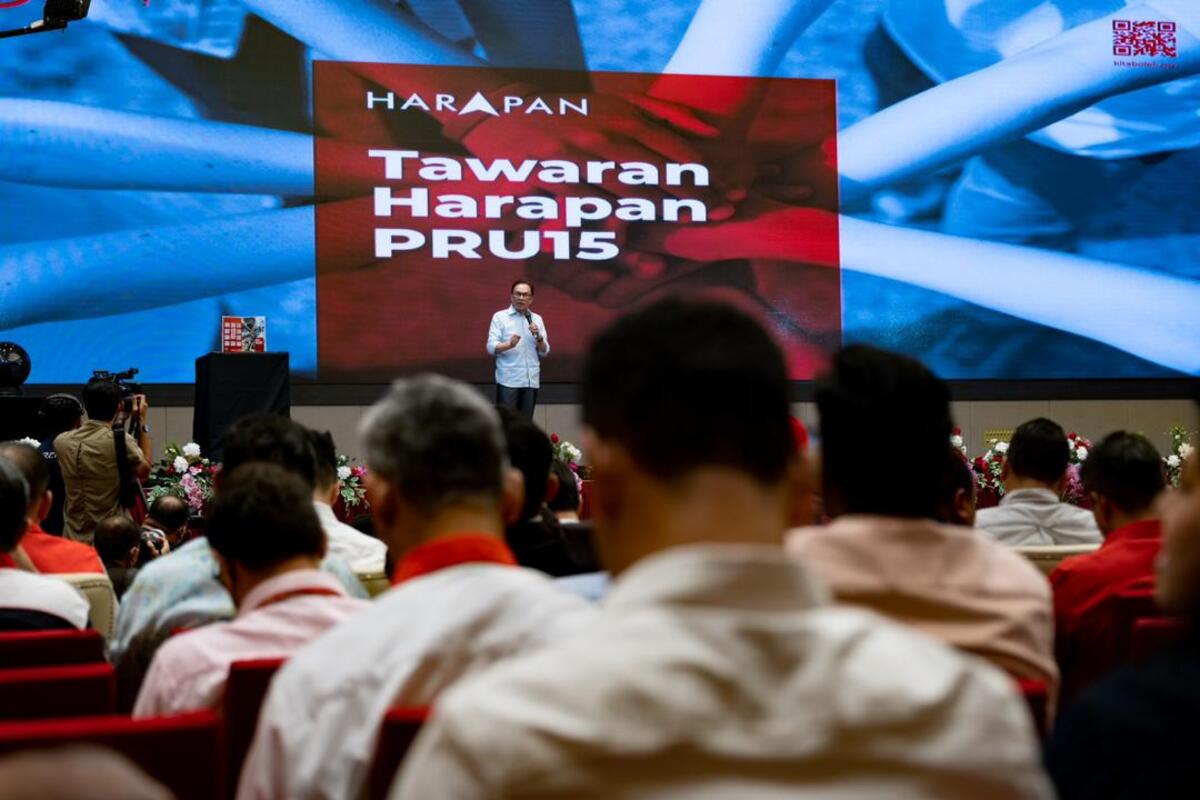KUALA LUMPUR, Nov 3 – Pakatan Harapan’s (PH) election manifesto proposes crucial health care reforms, including social and aged care, acknowledging problems with Malaysia’s health care system and ageing population.
One of PH’s key proposals is doubling public health care spending to 5 per cent of Malaysia’s gross domestic product (GDP), matching the World Health Organization’s (WHO) recommendation. Malaysia’s public and private health care expenditure is currently roughly equal.
Doubling the Ministry of Health’s (MOH) annual budget from RM32.4 billion for 2022 to RM65 billion or more is a tall order itself, especially if this is to be financed by government allocations from existing tax revenue, as PH prime minister candidate Anwar Ibrahim indicated.
PH goes a step further by promising to raise public health care expenditure to 5 per cent of GDP in five years within a single term, heeding calls from health experts and advocates.
“We are pleased to see that the PH manifesto contains three out of the four issues identified by the Galen Centre for Health and Social Policy as critical to addressing fundamental concerns related to the ability of the health and care system to maintain preparedness, relevance, sustainability, and resiliency,” says Galen Centre chief executive Azrul Mohd Khalib.
The four issues previously identified by the think tank are commitment to health care financing reform, action on non-communicable diseases (NCDs), fixing the neglect of the ageing population, and investments in mental health.
“Strong and publicly declared commitments to reforms are needed, and this manifesto provides a framework for that.”
Azrul, however, says that it is not possible, with the current method of health financing, for Malaysia to reach 5 per cent of GDP for public spending on health within the stated five years.
“It would currently require an increase of 100 per cent of existing funding levels to achieve that level, and it would take 10 years, not five, at current increments,” he notes.
“The question ‘How do we pay for it?’ should be on the minds of decision and policy makers whenever more funding is demanded. The answer needs to come from commitment to health care reforms, including earmarking tax revenue or introducing national health insurance. It is a political issue of eye-watering difficulty. There is no magic wand to get that money.”
PH’s election manifesto for the 15th general election lists health care financing as part of a National Health Reform Plan that will be monitored by a new Health Commission, without further details.
PH Youth chief Dr Kelvin Yii, who is defending Bandar Kuching in GE15, acknowledges that steps to reform health care financing need to be taken now: “While we won’t shift to it immediately, conversations and systems have to start.”
Another significant health care reform proposed in PH’s “Kita Boleh! Harapan GE15 Action Plan” is a National Health Services Commission to manage the human resources and staffing of health care professionals in the public sector.
Health experts previously called for a service commission to manage health care professionals separately from other civil servants that are currently managed by the Public Service Department (JPA).
“I’m quite pleased. I don’t have a lot of expectations; when you don’t have high expectations, you’re quite happy,” veteran physician Dr Milton Lum says about PH’s election manifesto. “Whether it’s deliverable is the more important issue.”
The one thing that stands out in PH’s GE15 manifesto is the inclusion of health care human resources – ie: contract doctors and the welfare of health care workers – in its 10 priorities, even though health is rarely, if ever, an election issue in Malaysia.
Crucially, PH recognises Malaysia’s brewing ageing crisis, dedicating an entire chapter in its manifesto to reforming caregiving for the elderly and incapacitated with a National Care Economy and Ageing Community Preparedness Plan (SiagaJaga), as well as another chapter on comfortable retirement.
The coalition proposes third-party contributions to the Employees’ Provident Fund (EPF) and an Elderly Protection Scheme under the Social Security Organisation (Socso) to avoid a retirement poverty crisis.
PH’s care economy proposal is primarily founded on professionalising the caregiving sector by building up capacity and training to achieve caregiver support in accordance with the ageing population by 2035.
PH also pledges to “institutionalise” caregiver assistance and allowance, targeted at caregivers who are forced to quit employment to provide care for family members.
The question of whether these election pledges will actually be carried out should PH come into power – especially when health and social care reform requires substantial funding that will have to come from the people – is a valid one.
However, PH’s manifesto should be welcomed as a recognition of the real (but often ignored) problems that Malaysians are facing now with health and aged care. It is impossible to undertake any reform without first admitting problems.
Many Malaysians now treat the Covid-19 pandemic as simply a bad dream, despite more than 36,000 official Covid deaths occurring over the past nearly three years. Malaysia has among among the highest per capita Covid fatality rates in Asia.
Thirty-six thousand deaths over 34 months – excluding (uncounted) non-Covid patients who died from inability to access care when hospitals were overwhelmed during the pandemic – is equivalent to 1,059 deaths per month, 35 deaths per day, 1.5 deaths per hour.
Malaysia’s maternal mortality ratio of 68.2 per 100,000 live births in 2021 — mostly due to Covid — is the highest in four decades since the 1980s.
No memorial has been erected to honour Malaysia’s Covid-19 victims and to serve as a physical reminder of the toll of the pandemic and, importantly, the lessons we need to learn from it.
Public apathy stems largely from attempts by politicians and MOH itself to portray that everything was under control, besides their refusals to admit the long-lasting harm of the pandemic to patients and people in health, education, and pretty much every sector of society, as well as to Malaysia’s economy itself.
This is what happens when problems, gaps, and flaws are not acknowledged.
PH’s election manifesto – which admits problems in Malaysia’s health and social care system – will serve as a guide that can be used by the public and stakeholders to hold the government accountable for its promises.








